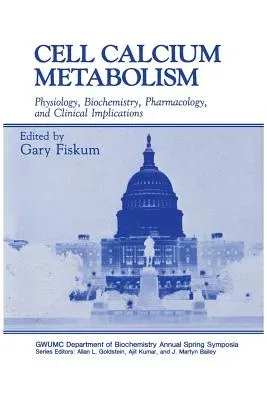Cell Calcium Metabolism: Physiology, Biochemistry, Pharmacology, and Clinical Implications (Softcover Reprint of the Original 1st 1989)Paperback - Softcover Reprint of the Original 1st 1989, 17 March 2012

Qty
1
Turbo
Ships in 2 - 3 days
In Stock
Free Delivery
Cash on Delivery
15 Days
Free Returns
Secure Checkout
Part of Series
Gwumc Department of Biochemistry and Molecular Biology Annua
Print Length
638 pages
Language
English
Publisher
Springer
Date Published
17 Mar 2012
ISBN-10
1468456008
ISBN-13
9781468456004
Description
Product Details
Book Edition:
Softcover Reprint of the Original 1st 1989
Book Format:
Paperback
Country of Origin:
NL
Date Published:
17 March 2012
Dimensions:
22.86 x
15.24 x
3.38 cm
ISBN-10:
1468456008
ISBN-13:
9781468456004
Language:
English
Location:
New York, NY
Pages:
638
Publisher:
Weight:
866.36 gm

